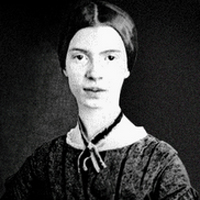These are the days when the Birds come back by Emily Dickinson: Summary and Analysis
The poem is, explicitly, about the end of summer and the commencement of the fall season. At this time, nature is unpredictable and birds migrate to other countries for the change of season. The poem presents with the economy and restraint, the entire charm and beauty of external nature with its humming bees and sophistries of June. But the real implication of the poem is to present the deceptive appearance of time.

Emily Dickinson (1830-1886)
There is an air of plausibility of the return of summer, but not reality. In the unusual warmth of autumn the skies with their blue and gold colors, resume the sophistries’ of June, as if it were by some mistake. Birds and seeds are deceived into a belief that the real summer has come back. The seeds themselves are cheated and bear witness to the coming of real summer. A timid leaf sprouts from the seeds seems to assure that summer has come. But the shrewd bee is not cheated by the fraud of plausibility and the poet too is unconvinced. But all this is a mere fraud, deceptive plausibility of Nature of man. This bee is not, however, cheated. So is the poet, although the plausibility of summer induces her belief.
The thought of the coming of summer evokes strongly religious feelings in the mind of the poet. These two stanzas couched in religious terminology reflect the religious sentiments. The poet speaks of the real summer and its serenity, which appears to her something divine. The religious feelings evoked by the summer are described in religious terminology of "sacrament", "last communion", "sacred emblems', "consecrated bread'' and "immortal wine". Summer is, to the poet, a thing of mysterious and sacred significance. Summer has some sacred associations for her. So, describing herself as a child (incidentally, it is quite characteristic of Emily Dickinson), the poet requests the summer to allow her to participate in the Lord's Supper and to join to share the consecrated bread and immortal wine. The religious feelings of these two stanzas are not a lavish waste here. They are there to revive the faith, which has been shattered by false belief induced by the fraudulent possibility of summer described in earlier stanzas.
The poet feels that the apparent reversal of time is a fraudulent jest played on man. Dickinson brings the relation of the changing of seasons to the way we haste through life. Those who grow old now are looking back on their lives. They look for the lost childhood, they are like the birds in the poem. They realize it was a blunder to rush through so quickly in life. They fail to enjoy their childhood. Nevertheless, when we are children, we want to be adults, but once we become adults we want to become children again. It is too late, and impossible to reverse the time and nature. Death is on its own course and we cannot deny its powerful grip at last.
Cite this Page!
Shrestha, Roma. "These are the days when the Birds come back by Emily Dickinson: Summary and Analysis." BachelorandMaster, 13 Dec. 2017, bachelorandmaster.com/britishandamericanpoetry/these-are-the-days-when-the-birds-come-back-summary-analysis.html.
Related Topics
Much Madness is Divinest Sense: Analysis
Renunciation: Summary and Analysis
Because I could not Stop for Death: Analysis
I Heard a Fly Buzz: Summary and Analysis
After Great Pain, a Formal Feeling Comes: Analysis
Success is Counted Sweetest: Summary and Analysis
I taste a liquor never brewed: Summary and Analysis
A Bird came down the Walk: Summary and Analysis
Hope is the Thing with Feathers: Analysis
I like to see it lap the Miles: Summary and Analysis
I had something that I called mine: Analysis
If I should Die: Summary and Analysis
I'm Nobody! Who are you?: Summary and Analysis
What Inn is this: Summary and Analysis
Exultation is the going: Summary and Analysis
Of Bronze-and Blaze: Summary and Analysis
A Clock Stopped: Summary and Analysis
I felt a Funeral, in my Brain: Summary and Analysis
Safe in their Alabaster Chambers: Analysis
There's a certain Slant of light: Summary and Analysis
To fight aloud, is very brave: Summary and Analysis
I like a look of Agony: Summary and Analysis
Bring me the sunset in a cup: Summary and Analysis
The day came slow-till Five o'clock: Analysis
 |
bachelorandmaster.com |